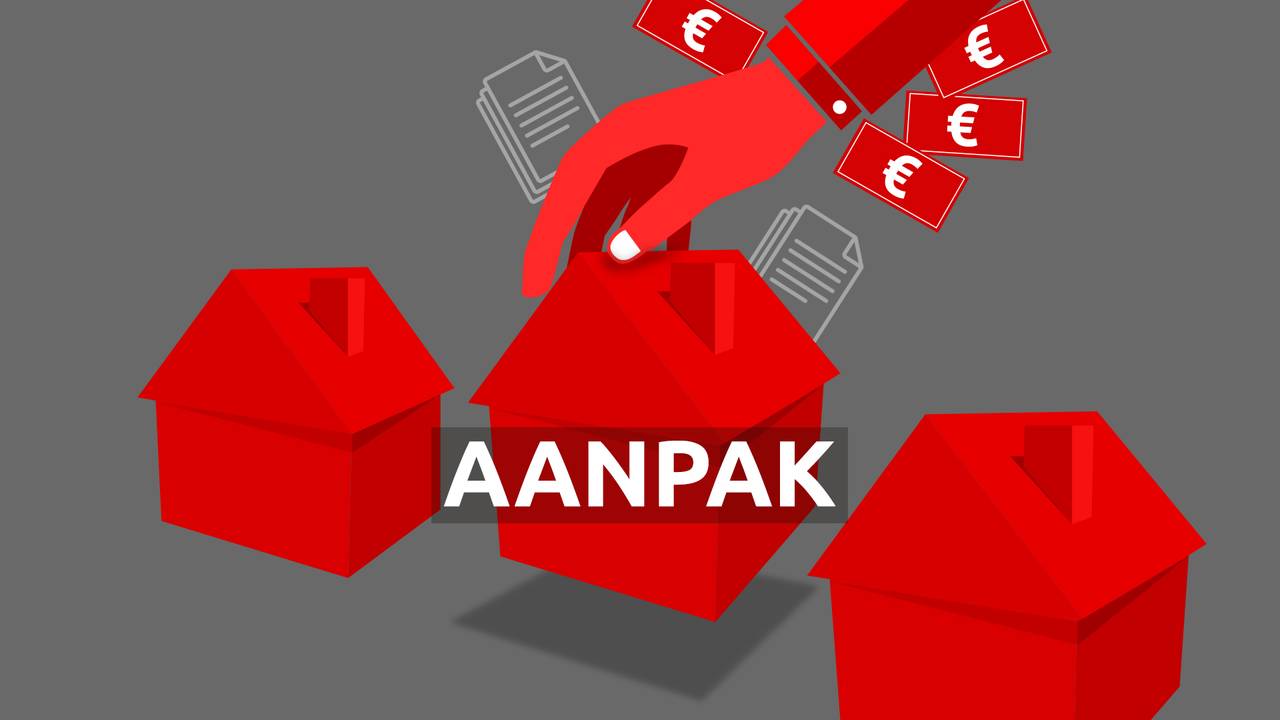In the nearly impossible search for an affordable home, many home seekers face not only fierce competition from fellow sufferers, but also from large pawnbrokers. More and more municipalities in Brabant are therefore taking measures to prevent houses from falling into the hands of investors.
Sanne Hoeks
—
First-time buyers can hardly find a home, while large real estate investors keep expanding their properties. With the introduction of compulsory self-occupancy and purchase protection, Brabant municipalities are trying to stop the growing pawnbrokers. This raises questions: Where in Brabant do these measures apply? Who are the largest active pawnbrokers in our province? And above all: are they really affected by the measures? Omroep Brabant found out for you and brings a series of stories.
Living in your own home
Brabant has a total of about 1.1 million houses, of which approximately 700,000 are owner-occupied and 400,000 are rental properties, according to figures from the CBS from 2021. More than a quarter (100,000) of these rental properties are owned by real estate investors. Housing associations have more than 300,000 rental properties in Brabant.
To ensure that private real estate investors do not buy and rent out even more properties, it has been possible to introduce purchase protection for existing houses and apartments since 1 January 2022. The buyer is then obliged to live in the house for a certain period of time. For example, investors should be barred and it should be easy for first-time buyers to buy a house.
In Eindhoven, for example, purchase protection has been in place since 1 March of this year. The measure is expected to come into effect this summer in Den Bosch and Tilburg. Breda also wants it, but it is not yet clear what the purchase protection should look like there and when it will be introduced.
Some municipalities indicate that they do not (yet) want to, because they are not receiving any signals that investors are buying up houses on a large scale. The municipality of Altena, for example, is in the competition: “In addition, we do not have many private rental homes, so investors who buy and rent out homes on a small scale are fulfilling a (small) need that is there. So there is no need for the time being. to introduce purchase protection.”
Doubtful municipalities
There are also many municipalities that have doubts and first want to investigate whether it is necessary. After all, municipalities must first demonstrate that there is a scarcity of cheap and medium-priced housing or that purchase protection is necessary to guarantee the quality of life in the neighbourhood.
Check this card to see if purchase protection applies to existing homes in your municipality and what it means
–
Waiting for privacy settings…
–
Protect local home seekers
A similar measure has been in place for new-build homes for some time: the obligation to occupancy. Even then, the buyer must at least live in the house for a certain period of time. In this way, municipalities hope to give first-time buyers a fairer chance at a new-build home.
A large majority of the Brabant municipalities already have a self-occupancy obligation for new construction, or will soon introduce it. Reason that is often mentioned: to protect its own inhabitants who are looking for a home. The municipality of Moerdijk: “We want to prevent slum landlords or investors from purchasing a house and then renting it out for a high price, leaving our local home seekers behind.”
But not all municipalities are ready yet. For example, the Municipality of Dongen wonders whether the measure will work: “In the past, we had a self-occupancy obligation. Actually, this only worked for the first residents and it is difficult to enforce. In practice, there are often reasons to exempt yourself from this obligation. Think of ending a relationship or moving to another municipality, for example in connection with a new job.”
Bergen op Zoom is for the time being the only municipality that indicates that it will not introduce a self-occupancy obligation. “If necessary, we will arrange this via an anterior agreement (agreement between the municipality and private individual in the initial phase of the construction project, ed.). This is already happening, but not via the compulsory self-occupancy instrument.”
Check this map to see if your municipality has a self-occupancy obligation for new-build homes and what it means
–
Waiting for privacy settings…
—


